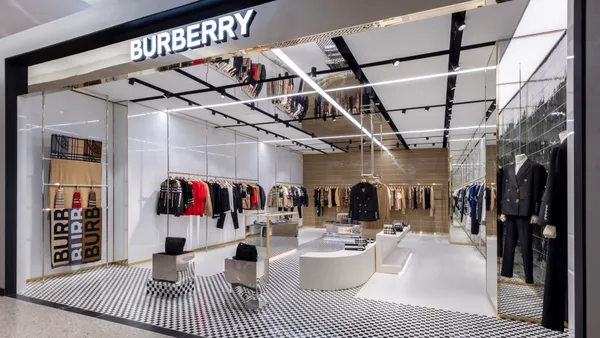Dive Brief:
- XPO expects to benefit from shippers increasing e-commerce volume, reshuffling supply chains to explore reshoring and increasingly looking to outsource supply chain management, XPO Chief Strategy Officer Matthew Fassler said on the company's earnings call Thursday morning.
- Despite revenue falling 17% year over year, growth in e-commerce volume during the coronavirus pandemic was a bright spot for the company during the second quarter, executives said. Revenue in XPO's last-mile segment grew 3% year over year in the quarter. "Our last mile specialization in heavy goods continues to benefit from the growth of e-commerce, and we saw strong demand for home improvement goods and exercise equipment," Fassler said.
- Fassler said the company has also seen interest from customers that are exploring automating operations but consider the cost of entry too high and the technology hard to implement on their own. XPO is also seeing more demand from customers looking to outsource some of their e-commerce capacity. "In the short run, customers need interim capacity to manage peaks in demand, especially since the pandemic has made buying patterns less predictable," he said. "In the mid-term, they're interested in arranging additional distribution centers for supplemental capacity on a regional basis."
Dive Insight:
Sales through online channels increased significantly during the pandemic as storefronts closed and shoppers turned to the internet for many purchases. This led to a 93% year-over-year increase in digital spending in May, according to a MasterCard report.
"The surge in e-commerce has really pulled forward demand we expected to move online by a couple of years," Fassler said.
As a result, customers are approaching XPO looking for larger distribution centers and more e-commerce facilities, he said.
Outsourcing is one of the main growth drivers in the broader logistics industry, CEO Bradley Jacobs told analysts on the call. However, XPO's logistics revenue fell more than 8% in the second quarter.
"More and more companies — and particularly during the pandemic — are putting their hands up and saying, 'You know what? Let's outsource more, or even all, of our supply chain needs to people who do this for a living full time,'" Jacobs said, crediting the company's technology, data and understanding of supply chain trends with helping to obtain this volume.
XPO won three large contracts during the quarter, which Jacobs referred to as "whales." One was a $250 million contract with Arla Foods for delivering dairy products in the United Kingdom. The other two are e-commerce facilities in the U.S. West Coast: One is for a branded apparel company that will ramp up to 400 robots, and one is for a fast-fashion retailer that will ramp up to 500 robots.
XPO has built out its warehousing facilities with robotics that include robotic arms and automated guided vehicles.
"These will be some of the most automated warehouses in the world," Jacobs said of the two planned e-commerce facilities.
Fassler said XPO's sales team is beginning to increasingly hear about nearshoring as they talk with customers "who are considering, over the long run, of moving their means of production closer to their consumers."
Moving supply chains is a trend playing out in the U.S. and European markets, he said. "So, we expect to see business opportunities emanate from that," he said.














